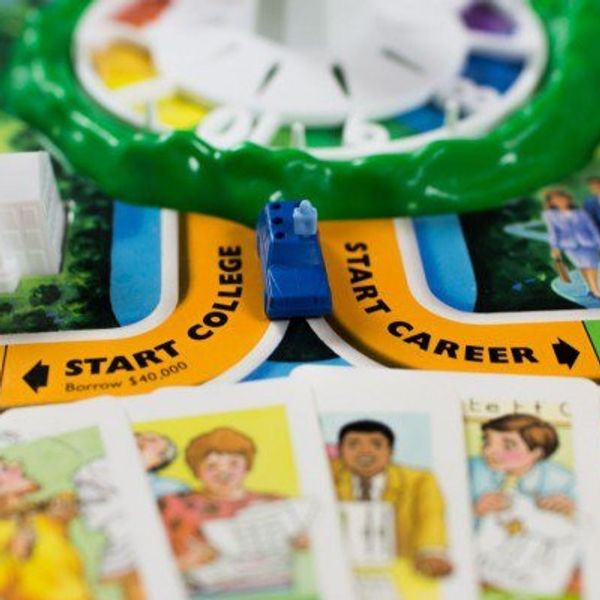As the summer comes to a close, a new wave of freshman is ready to come into college with the entire sea of opportunities before them. It's simultaneously an exciting and terrifying time for many reasons; these students will achieve a level of independence never experienced before, they have the opportunity to meet people from all over, and most importantly, they get a chance to be in control of their education and pursue their interests. For many students experiencing college for the first time, however, being on top of coursework can be a challenge.
They are not used to being self-taught or searching for information beyond what is mentioned on the PowerPoint slides from a lecture. The fact of the matter is that taking charge of your education is a huge responsibility which requires a large amount of initiative and effective studying. To help make the most of your time while studying, here are a few tips that can help put you on top of your classes!
1. Open your textbook
This is something that seems so simple, but believe it or not, many college students do not do this. I know plenty of people who never open their textbooks, or will just skim through everything once and never open it again. They expect everything to be covered in a lecture. Unless your professor doesn't require a textbook for a class, read your book. There is so much useful information in your $200 textbook that your teacher doesn't have time to cover in class but expects you to know for an exam. Additionally, skimming the book is ineffective; taking the time to process things by taking notes and organizing information while you read helps to encode things into your long-term memory and helps with retention and recall of information for exams.
2. Do not try to multitask
This seems pretty obvious; if you are doing something that requires focus, you should be in an area without any distractions. Many people know this, but that doesn't stop them from writing papers or doing math problems with the TV on in the background. Doing this, however, means you are not giving the show enough attention to really enjoy it AND you are not giving your homework enough attention to truly understand it either. The same goes for texting or checking social media while studying.
There are multiple studies that have examined the effects of multitasking. By letting your TV or phone compete with your homework for your attention, you take longer to complete your work, you don't store the information you are supposed to learn as effectively, and ultimately, your grades can suffer for it.
3. Study in groups, but with caution.
One habit that many people have told me to adopt is to have study groups. Certainly, there are times where this has been helpful for me, especially in courses that are more focused on solving problems, such as physics or organic chemistry. When there are certain things you want an explanation for, it can be helpful getting help from your peers who are also new to the material.
With that said, if you don't use good study group strategies, they can do more harm than good. If there are too many people, if the participants don't have comparable levels of preparedness, or if there are people with whom you tend to get off track, you may find yourself "studying" for hours and having very little to show for it at the end.
4. Learn to know what you know.
In the process of learning, it's extremely helpful to take a mental inventory of concepts you already understand and figure out what's left to be learned. This concept, known as metacognition, is one of the most useful tools one can use to more effectively and efficiently gain an understanding of concepts. As Dr. Chew explains in his youtube series on effective studying(which is a great resource for understanding how to become a better learner), "Metacognition refers to your awareness of how well you truly understand a concept. Accurate metacognition is one of the key differences between successful and struggling students. Weaker students are grossly overconfident in how well they understand the material.
As a result, weaker students don't study as much as necessary in order to truly understand the material. They take an exam, they are confident they have done well, then they are stunned when they do poorly." This crucial skill can be hard to develop, so here's a video that describes some strategies students can employ to improve their metacognitive skills. Having this skill, however, can be especially useful when you're running low on time and trying to figure out what concepts you should study in the last moments before an exam.
5. Avoid all-nighters at all costs.
This is a pretty common practice among students. It's the night before the exam, and you haven't studied anything yet, so you try learning four chapters of material in one night, hoping you'll be able to survive. But pulling an all-nighter is one of the worst things you can possibly do. A sleep expert from Texas A&M University talks about how all-nighters lead to sleep deprivation, which results in lowered cognitive acuity and failure to encode information into your long-term memory.
Furthermore, when sleep deprivation accumulates, it can result in brain atrophy. Instead of trying to cram everything in one night, study early and often to gain a better grasp of the material. If you find yourself cramming too often, make more room in your schedule to study more often. There is no good that comes from studying the whole night away.
6. If you don't understand something, do not panic until you've tried everything.
Sometimes, you just don't get something after a lecture. Maybe the teacher went through everything too quickly, or maybe they didn't do a good enough job of breaking down the jargon and explaining what everything means. In any case, if you can't figure out what they mean on your own, you must use whatever resources are available to do well in the class. Sometimes, TAs can be helpful, especially since they're often fairly fresh on the material and should be able to explain it to you at a level that you can comprehend more easily. If they don't explain it well enough, the internet is full of wonderful resources to make better sense of even the most complex concepts. Resources like Khan Academy or Clutch Prep are usually very helpful with slowly breaking down concepts. If your classes aren't covered in these sites, even a careful google search can reveal an amazing explanation to make everything click. Sometimes, it only takes one good explanation to understand something well enough for an exam, but there are times where you just have to look for the information.
* * *
Getting used to being entirely responsible for your education can be really scary, but developing good study habits early on is incredibly lucrative, especially when you start taking courses over subjects you are completely unexperienced with. Even if you've already started college and have struggled in the past with keeping your grades up, it's never too late to employ these strategies and become a better student than you once were.



























